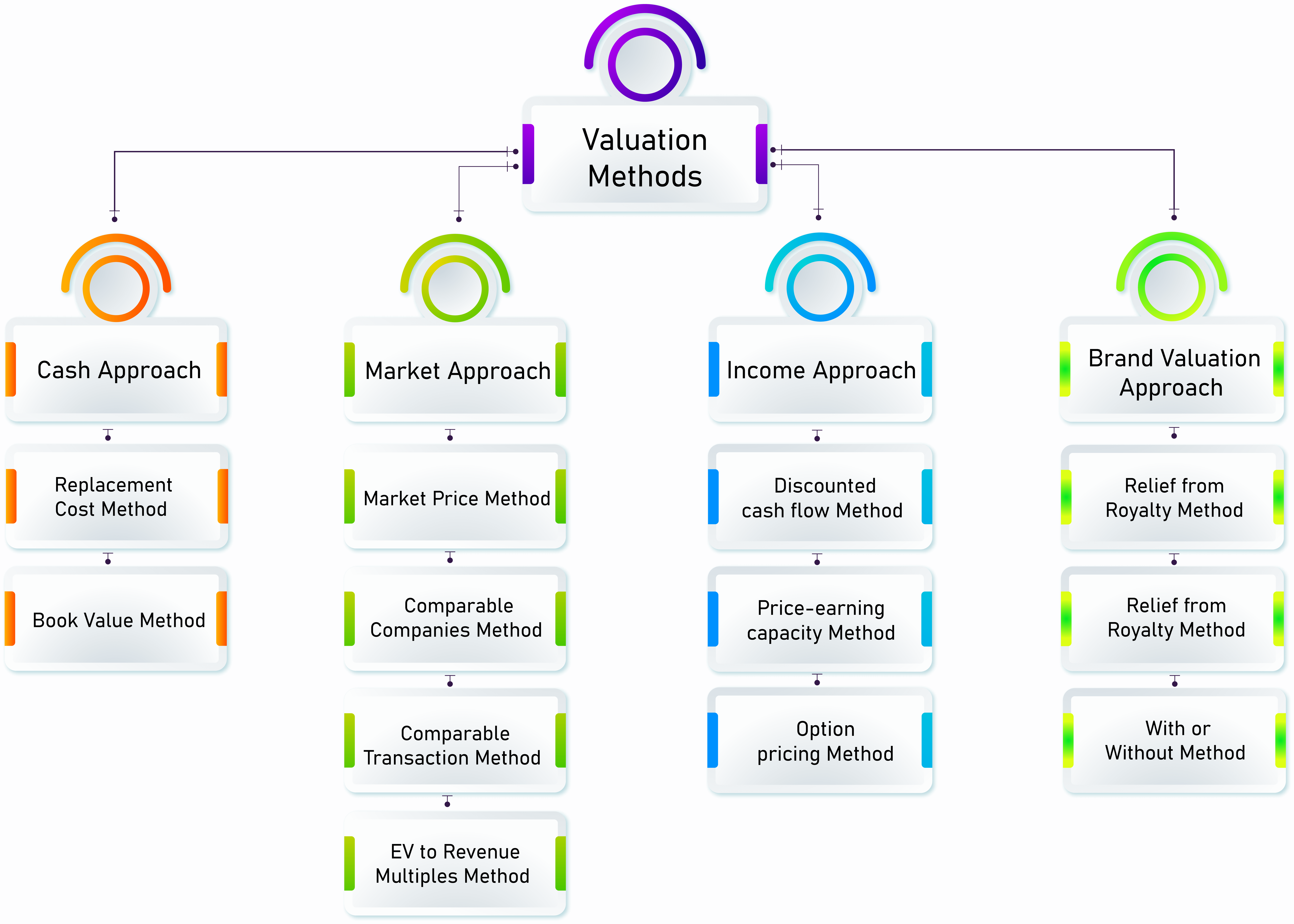
Transforming Company Valuations 💰 with AI Approaches 🤖
11 March, 2024
Company valuations have always been a critical part of strategic decision making for businesses and investors. Getting accurate valuations right is essential for tasks like negotiating mergers and acquisitions, assessing investment opportunities, and planning financial strategies. However, the traditional approaches to valuations have certain limitations that can impact their objectivity and reliability. 🏗️
This can now be improved with Artificial Intelligence. As AI and machine learning continue to disrupt various industries, they are also revolutionizing how companies value and analyze other businesses. These advanced technologies are enabling more data-driven, comprehensive and consistent valuations compared to conventional methods.👍
In this in-depth article, we will explore how AI is transforming traditional valuation approaches. We'll examine the role of AI in automating data analysis, enhancing accuracy, identifying market trends and more. Real-world success stories and best practices will demonstrate AI's potential to take company valuations to the next level.
The Importance of Accurate Valuations
Before understanding AI's impact, it's important to recognize why accurate company valuations matter. Valuations provide insights into a business's worth, growth potential and risks. They aid critical tasks like:
- Assessing investment or M&A opportunities
- Negotiating acquisition/sales prices
- Identifying undervalued/overvalued companies
- Comparing industry peers
- Making strategic long-term plans📈
Inaccurate valuations can lead to missed opportunities, incorrect investment decisions and suboptimal strategic choices. Therefore, conducting thorough valuations is essential for businesses and investors alike.🔧
Traditional Valuation Methods and Their Limitations
The main traditional valuation methods include financial statement analysis, discounted cash flow (DCF) modeling, and comparable company analysis (CCA). 
While useful, each comes with limitations:
Financial Ratios & Statements
Open to subjective interpretation of numbers 🧐
Historic data may not reflect future prospects
Discounted Cash Flow
Relies on assumptions about future cash flows/discount rates💭
Incorporating qualitative factors is challenging
Comparable Company Analysis
Companies may not be directly comparable
Historical data gets outdated quickly 📰
Moreover, traditional valuations are:
- Time-consuming and labor-intensive 🕰
- Vulnerable to human error, biases and inconsistencies 🧠
- Inefficient at processing huge datasets 📊
Clearly, a more data-driven, systematic approach was needed to address these shortcomings. Enter AI and machine learning. 🤖
The Role of AI in Accurate Valuations
AI is transforming traditional valuation approaches through automation, enhanced insights and objective analysis. Here are some key ways:
Automating Data Collection and Analysis
AI streamlines the data collection process, analyzing huge datasets much faster than humans. It extracts insights by identifying patterns across financial statements, market trends, news, social media and more. This saves huge amounts of time spent on manual data tasks. ⌛
Enhancing Accuracy with Machine Learning
Machine learning models are trained on historical valuation data to identify the factors truly impacting company worth. As they analyze more data over time, their accuracy increases. This leads to more reliable predictions compared to subjective human judgments. 📏
Identifying Relevant Market Trends
By processing huge amounts of unstructured data, AI can uncover niche trends across industries and geographies. This helps valuers incorporate macroeconomic perspectives and qualitative factors traditionally missed.📈
Making Predictions with Scenario Modeling
AI runs predictive simulations under different potential scenarios, accounting for risks. This helps identify all possible valuation outcomes rather than point estimates from traditional tools. 🧮
Let's look at examples of how leading companies are leveraging AI for accurate valuations.
Real-World Applications
Investment Bank Valuations Using AI 💰
Goldman Sachs uses AI-driven models to value companies during M&A advisory work. By analyzing past deal data, models identify revenue drivers and provide DCF-based valuations 40% faster than traditional analysts. This improves the bank's advisory services.
Startup Valuations Powered by ML 🚀
Sequoia uses an ML model leveraging past startup investment data to value tech firms. It predicts future financials based on attributes like business model, team strength, competition and macros. This systematic approach identifies promising companies more efficiently.
Valuing Real Estate with Computer Vision 🏠
CivicScan uses computer vision on satellite images to extract property attributes. Combined with location and market data, their AI tool rapidly values commercial and residential real estate 30% more accurately than human assessors.
From Wall Street behemoths to boutique startups, businesses recognize AI's potential to enhance valuation accuracy, consistency and efficiency. Properly governed models ensure fairness, explainability and privacy are maintained.
Challenges and Risk Mitigation
While promising, AI valuations require careful implementation to address risks:
Bias in Training Data 🧐
If historic data used to train models reflects inherent biases, results may also be skewed. Ensuring a representative sample can help.
Explainability of Results
"Black box" predictions from complex neural networks lack transparency. Rule-based and interpretable models provide reasons for outputs. 📝
Skill Shortages 👨💻
AI talent demand outpaces supply. Businesses must invest in upskilling/reskilling existing teams to benefit from AI valuations.
Model Governance & Oversight
Rigorous testing, monitoring and updating processes keep models accountable over time as conditions evolve. External audits build trust.👨⚖️
Data Security & Privacy🛡
Sensitive financial/operational datasets require multilayered protections to ensure no breaches occur. Compliance with regulations like GDPR is critical.
With proper attention to risks, AI offers a promising future for the valuation landscape. As datasets and methods continue improving, expect predictive accuracy and strategic foresight to reach new heights. For businesses and investors, this means making decisions with unprecedented confidence.
In summary, AI is revolutionizing traditional company valuation approaches through its superior processing power and ability to uncover subtle patterns. Machine learning guarantees continually advancing strategies. When responsibly implemented, the benefits of AI valuations are clear - optimized capital allocation and strategic planning for high performance. The integration of advanced technologies into core financial processes is well underway.📈